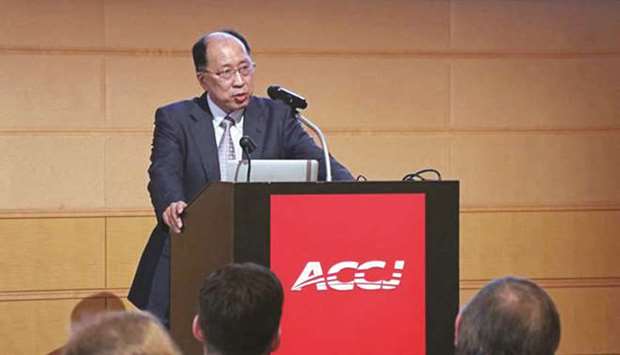“They should not just sit and wait for the BoJ to change its policy. Will everything be alright if it seeks exit and normalises interest rates? I don’t think so,” Toshihide Endo, commissioner of the Financial Services Agency (FSA), told Reuters in an interview yesterday.
The comments come as many of Japan’s roughly 100 regional banks grapple with diminishing returns from their traditional lending business, hit by a low interest rate environment amid the BoJ’s ultra-loose monetary policy.
A shrinking population outside Japan’s biggest cities is also hurting business.
Regional banks’ combined core profits totalled ¥1.2tn ($10.9bn) in the year ended in March, data complied by FSA shows, down 30% from five years earlier, just before the central bank launched aggressive monetary easing.
Endo, who became FSA chief in July, said managements at some regional banks needed to get their act together, warning that they were “not considering seriously” how to build a sustainable business model despite the industry’s gloomy prospects.
“We have been telling them to consider action and make judgements on their own, not just because we tell them to do so,” he said.
Endo said FSA is not urging consolidation among regional banks, emphasising it is up to the management of each lender to decide on options to survive.
At the same time, Endo said there have been some mergers that made him doubt managements’ seriousness. “Some rival banks got together under a holding company just for the sake of a non-aggression pact. I don’t see the point of it,” he said. Endo, 59, joined the finance ministry in 1982. From 2015 until last month, he oversaw the country’s financial firms at the FSA’s supervisory bureau.
Before that, he ran its inspection bureau.
On cryptocurrency exchanges, he said the FSA was trying to strike a balance between protecting consumers and promoting technological innovation.
Japan last year became the first country to regulate cryptocurrency exchanges, as it tries to encourage technological innovation while ensuring consumer protection. The FSA took a tougher stance towards the industry after the $530mn theft of digital money from Tokyo-based Coincheck Inc in January.
FSA inspections found sloppy management at many of the exchanges, saying they lacked basic internal controls to protect users and prevent money laundering.
As a result, some exchanges were ordered to temporarily suspend operations.
“We have no intention to curb (the crypto industry) excessively,” he said. “We would like to see it grow under appropriate regulation.”

